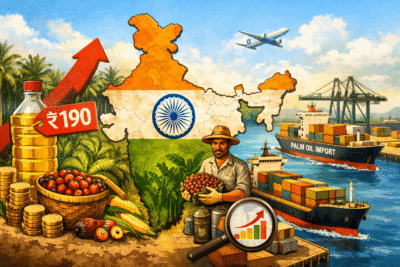
The “Yellow Hat revolt” brewing in France refers to a new rural uprising led by farmers, distinct but reminiscent of the earlier “Yellow Vests” protests. This movement has recently been prominent in farmers’ protests, taking more direct and impactful actions than the traditional farmers’ union FNSEA.
The original Yellow Vests movement (2018-2020) was a populist grassroots protest against rising fuel taxes, high living costs, and economic inequality, especially affecting rural and peri-urban working and middle classes. Protesters wore yellow safety vests, a symbol accessible to all drivers in France.
The movement expanded beyond fuel taxes to broader demands like minimum wage increases and political reforms, targeting President Macron’s policies seen as favoring the wealthy.
The current Yellow Hat revolt appears to be a continuation or evolution of rural discontent, particularly among farmers, who feel marginalized by government policies. It reflects ongoing tensions in France’s countryside, where economic pressures and dissatisfaction with the government have fueled protests.
The Yellow Hat revolt is a new rural protest movement in France, led by farmers, building on the legacy of the Yellow Vests but with a sharper focus on agricultural and rural issues.
Dig deeper
The Yellow Hat revolt in France is a significant rural uprising led by the Coordination Rurale union, which has recently gained substantial influence in farming union elections, breaking the long-standing dominance of the FNSEA (National Federation of Agricultural Holders’ Unions).
This movement is known for its signature yellow hats and a more confrontational style, including protests such as setting manure on fire in front of government buildings and direct confrontations with President Emmanuel Macron.
The revolt stems from acute economic hardships faced by farmers, especially in regions like Bordeaux, where winemakers are impacted by international trade tensions, including threats of high tariffs from the U.S. under Donald Trump’s trade policies. The farmers are also concerned about competition from countries like Ukraine and demand more protectionist measures to safeguard their livelihoods.
Politically, the movement aligns closely with nationalist parties such as Marine Le Pen’s National Rally, which has seen a surge in rural support alongside the Yellow Hat union. Polls show that 62% of yellow hat supporters back far-right parties, reflecting a broader rural discontent with mainstream politics and economic policies. The movement’s leadership, exemplified by figures like Serge Bousquet-Cassagne, embraces a militant and defiant posture, sometimes drawing criticism for intimidation tactics but also admired for strong leadership among supporters.
The revolt is part of wider European farmers’ protests against low food prices, stringent environmental regulations, and unfavorable trade deals like the EU-Mercosur agreement, which farmers believe threaten their economic survival. These protests have involved road blockades, large convoys, and occupations, with farmers demanding better pay, less restrictive policies, and protection from global competition.
In nut shell, the Yellow Hat revolt is a rural, farmer-led movement in France combining economic grievances, nationalist political alignment, and militant protest tactics, challenging both government policies and traditional agricultural unions.



